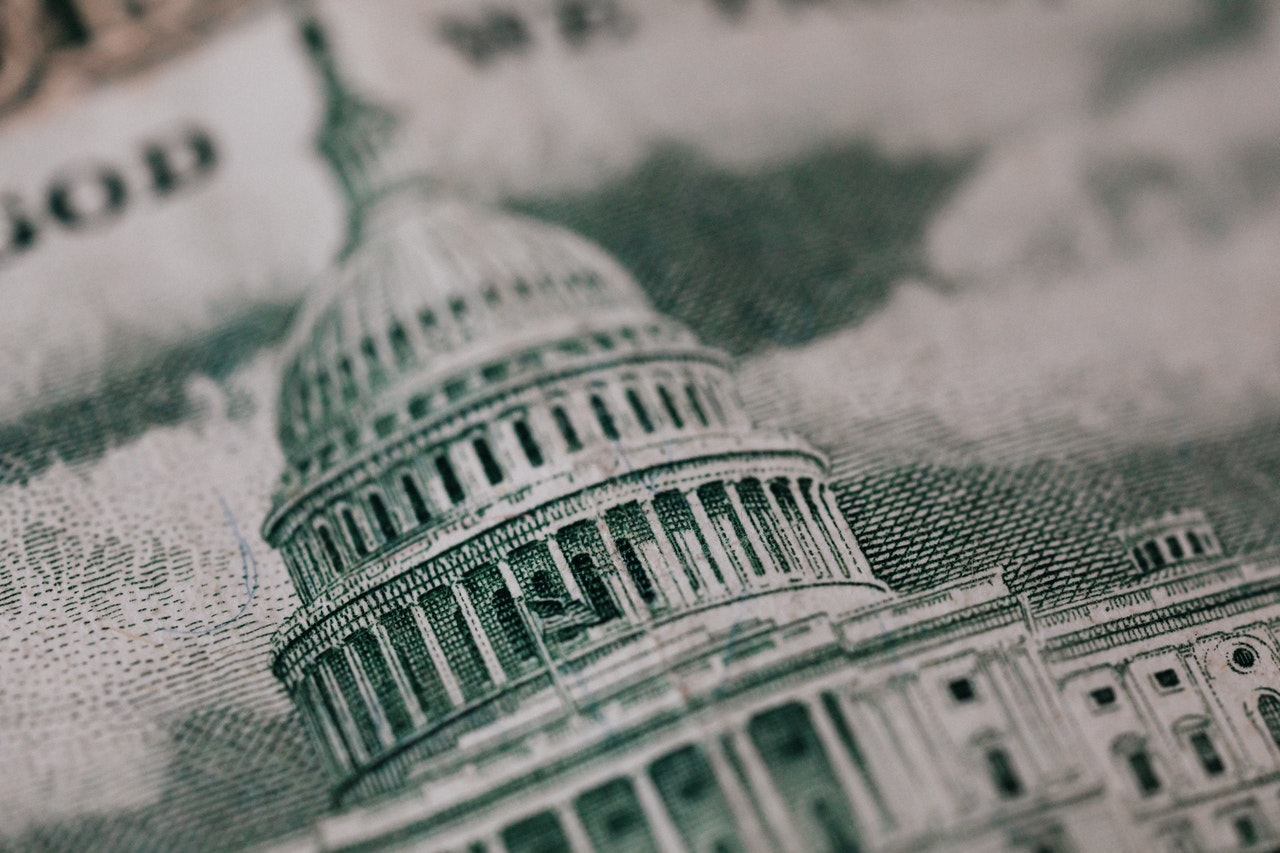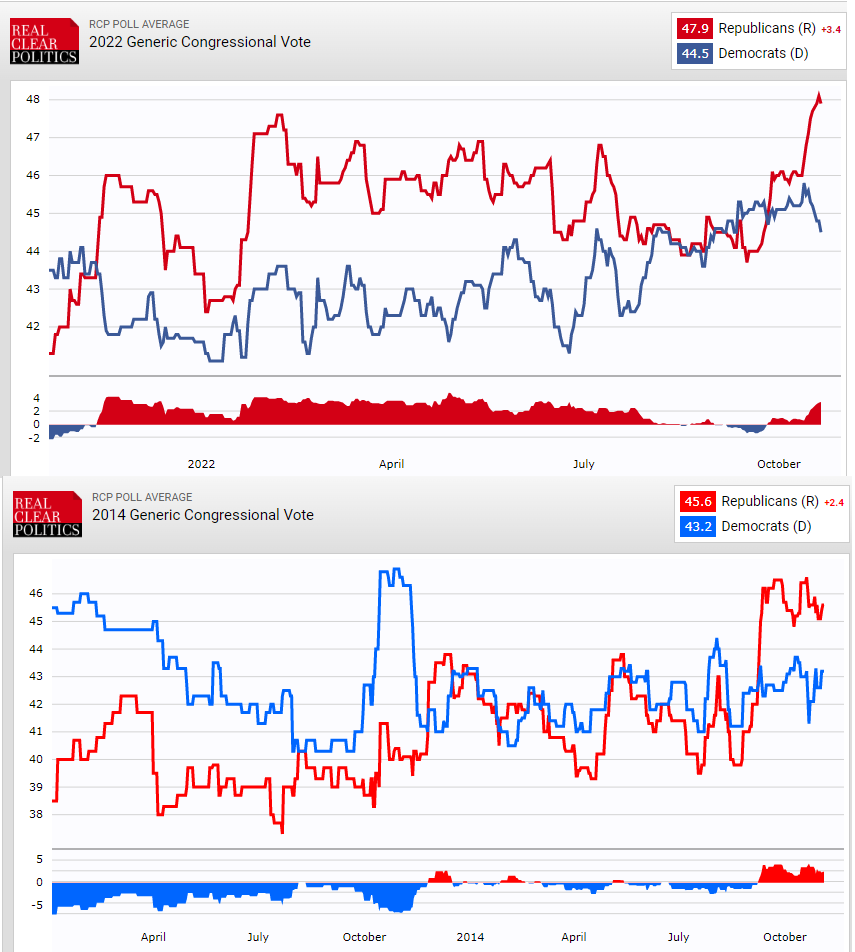
So-called “wave” elections are a dime a dozen in the modern age, and just like real waves in the ocean, while there are some factors (like lunar and weather activity) which can help us predict wave activity, there’s no way to know for sure what the ocean is going to throw at you. Political waves fuction similarly.
What do the political waters hold in store for us in November 2022?
History is always a reliable if imperfect guide. In 2010 and 2018, the two most recent *major* midterm wave control change cycles in the House, the respective parties post high double-digit gains (or loses) in the lower chamber. 2018 was unusual insofar as the GOP picked up seats in the Senate despite getting crushed in the House; that’s probably attributable to Donald Trump’s unique appeal in red states where he actively campaigned for candidates.
The RCP average for the generic congressional ballot on October 22nd in those cycles showed 7-8 point leads for the party which would ultimately go on to capture the U.S. House, and the ultimately successful party had clearly lead in the average for most of general election cycle. The same was true of 2006.
This year? The average has fluctated in recent weeks/months in terms of which party is ahead, and as we enter the final two weeks, the GOP currently shows a more modest 3-4 point RCP average edge. Decisive, yes, and it may still be growing but not as dramatic an edge as of today than what we saw in 2010…
2014 was a similar story.
Republican gained a net of 9 U.S. Senate seats in November 2014 and gained a net of 13 House seats; the end result was the largest GOP congressional majority since the beginning of the Great Depression.
The U.S. economy was arguably on an upswing in 2014 with the strongest job growth since 1999; long stagnant under the incumbent Barack Obama, America’s economic engine finally beginning to replace jobs shed during the Great Recession at a respectable clip. 2022 is clearly different both in terms of scale and where we are in the economic cycle. Rampant inflation is only the most tangible of a growing number of economic indicators pointing towards a potentially (very) bleak 2023, and polling reflects growing pessimism concerning the future economic outlook. Perception is political reality, and both Barack Obama and Joe Biden posted similar negative job approval numbers at this same point in their respective cycles (low double-digit disapproval). Additionally and most critically, the public was also pessimistic about the economy in fall 2014.
So if you’re picking a recent cycle for a point of reference, 2014 is the closest to the mark for a midterm.
The big difference between 2014 and 2022: the battlefield itself.
Republicans entered Election Day 2014 with 234 seats and ended the day with 247 seats (a net pick up of 13 seats). Hence, the GOP had a lower ceiling eight years ago since they already had a majority. By contrast, the GOP begins the 2022 cycle as a minority party with only 212 seats, 22 less than they had in October 2014. What’s more, the global redistricting process across all 5o states produced a slightly more favorable map for the Republicans if only by a few seats. So while the GOP’s polling may not be as strong as it was in 2010, the potential for a much larger U.S. House swing is there due to the higher number of lean-GOP or toss up seats currently held by Democrats this year. Conversely, the GOP isn’t gaining 9 seats in the Senate this year like it did in 2014 because the map is much less favorable than it was back then.
Like I said in the headline… 2014, but with a caveat. And it’s a big one.
This analysis may not help us MEASURE the coming “red wave,” but it might help you properly align your expectations. Either way, expect the political seas to surprise you. The presence of surprises in wave years are the only reliable bet.



